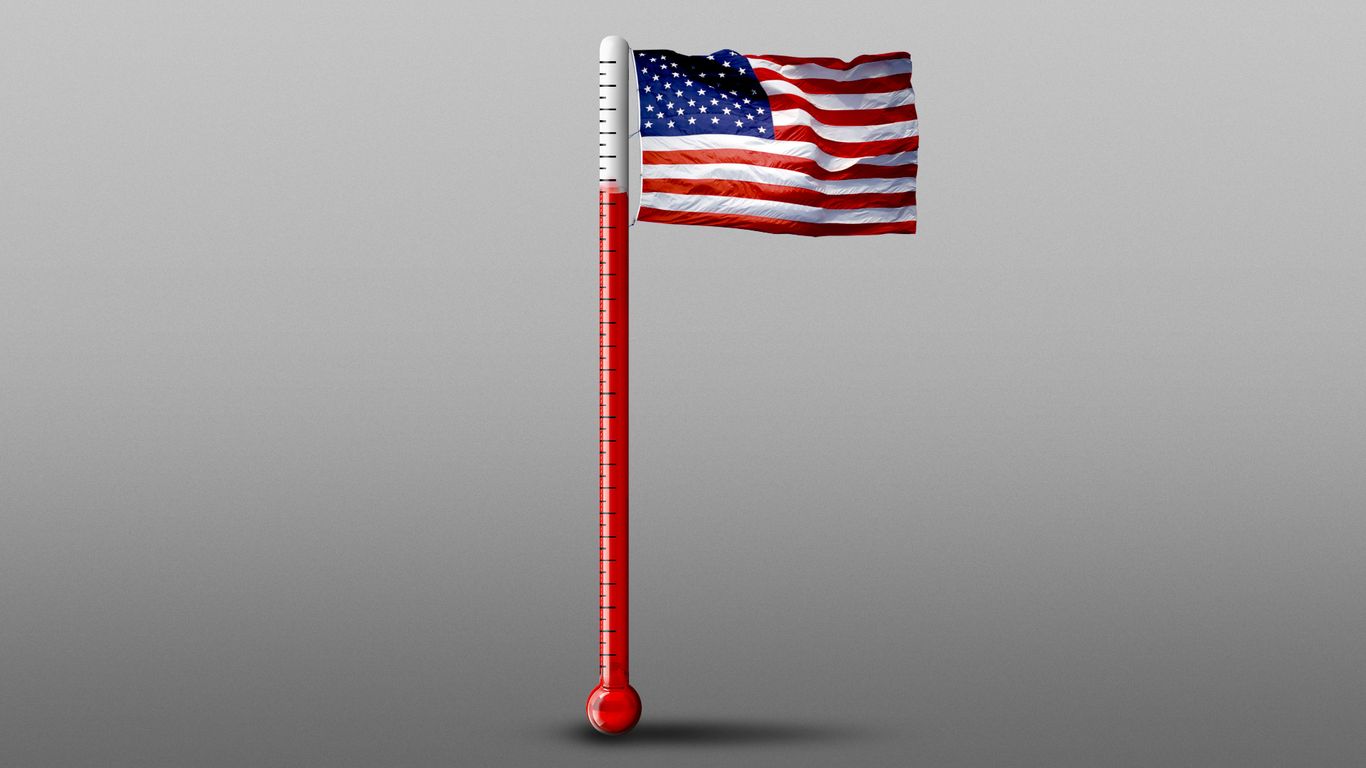Jim VandeHei: What you can do to break our national fever

Understanding the Urgency of the Moment
The tragic death of Charlie Kirk, along with the numerous other killings and assassination attempts, has created a moment for reflection and action for 340 million Americans. This is not just a time to grieve but also an opportunity to confront the growing violence that threatens our society. It's essential to respond with both sadness and a sense of disgust at the senseless acts of violence that continue to plague us.
This moment calls for a collective effort to ensure that a small number of extremists do not define the political landscape. We must ask ourselves: Will we allow a few crazies to shape the views of 44 million registered Democrats or 37 million registered Republicans? The answer should be a resounding no. Here are six ways we can help break this cycle of violence and division.
Wake Up to the Reality
The situation is deteriorating and becoming increasingly dangerous. From presidents and congressional leaders to cultural figures like Kirk, state officials, and ordinary citizens, people are being targeted and killed at an alarming rate. Within minutes, small groups of individuals justify or even celebrate these acts, and their views are amplified across both sides of the political spectrum. As a result, social media feeds can feel like a scene from an apocalyptic movie.
Stay Grounded in Reality
It's crucial to understand that the person making an idiotic comment on platforms like MSNBC or X is just that—an isolated individual. They do not represent the views of an entire party or ideology. Their comments gain attention because they are so outrageous, but when others "like" them out of anger, it pushes the content higher on your feed. This can create a false perception that the world is descending into chaos when, in reality, most people are simply grieving.
In the past, such extreme voices were confined to the fringes—like one person in a bar, drinking and shouting nonsense. Now, those individuals can gain traction online, with others "liking" their posts, making them seem more popular than they actually are. This is the power of social media, and it's important to recognize that it doesn't reflect the majority's views.
Tone It Down
Avoid letting the extreme voices or algorithms push you into worsening the situation. Don’t share or engage with the content. It’s okay to feel sad or angry in silence. Your mental and emotional well-being is important, and constant exposure to negativity can have a detrimental effect.
Shut It Off
While it may be difficult, it's essential to take a break from social media during these times. It's not just the negativity that's amplified—it's also the spread of misinformation. People with little expertise suddenly become experts, sharing misleading information. Put down your phone, go outside, and take a moment to pray or reflect.
Open Up to Dialogue
We cannot solve this issue by retreating into our own bubbles. It's easy to hate faceless entities, but engaging with people who hold different views can reveal complexity, heart, and struggle. Try reaching out to someone you disagree with and ask if you can have a calm, nonjudgmental conversation about life. It might sound cliché, but it's worth trying.
Love as the Antidote
As a pragmatic introvert who runs a media company, I understand the fears and worries many of you share. However, the only true antidote to division and despair is hope and repair. It starts with each of us. Watch your words, offer a hug, and help someone in need.
A Message of Hope
There is still hope in the world. For instance, despite the differences, many MAGA leaders, including Charlie Kirk, have shown calm and respectful exchanges. Similarly, some controversial voices on the left also demonstrate humanity and complexity. People can hold views that challenge your beliefs, yet they remain human.
Another example of hope comes from Congress. After Kirk's death, I attended a reception honoring parents who adopt or foster children. Autumn, my wife, is part of the Congressional Coalition on Adoption Institute (CCAI). The largest bipartisan, bicameral caucus in Congress, with 135 lawmakers, focuses on adoption issues. This shows that there is still hope in politics, even if it's not widely covered in mainstream media.
Final Thoughts
The path forward requires small, deliberate choices from each of us. Most people are good and peaceful, but the actions of a few can lead to chaos. By taking these steps, we can work together to prevent violence and division from defining our nation.
Post a Comment